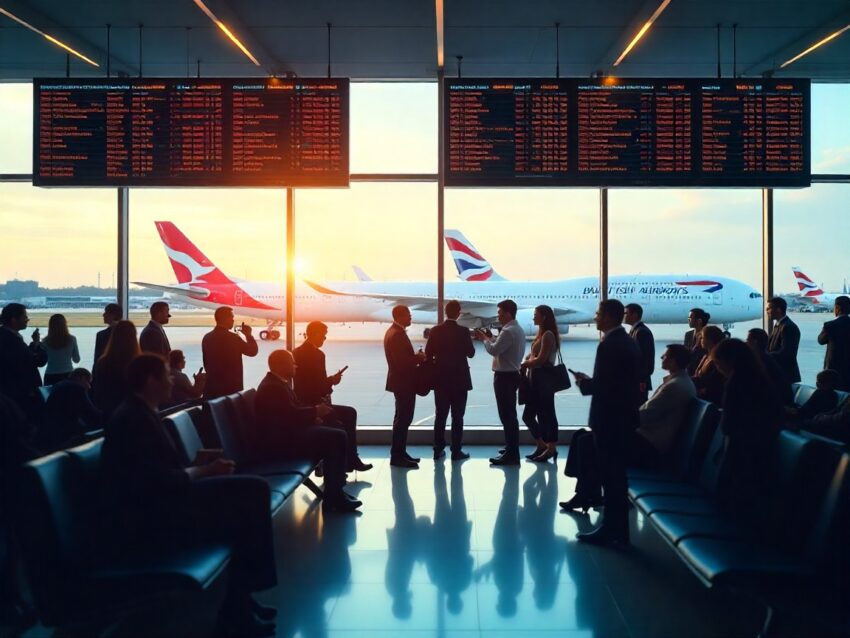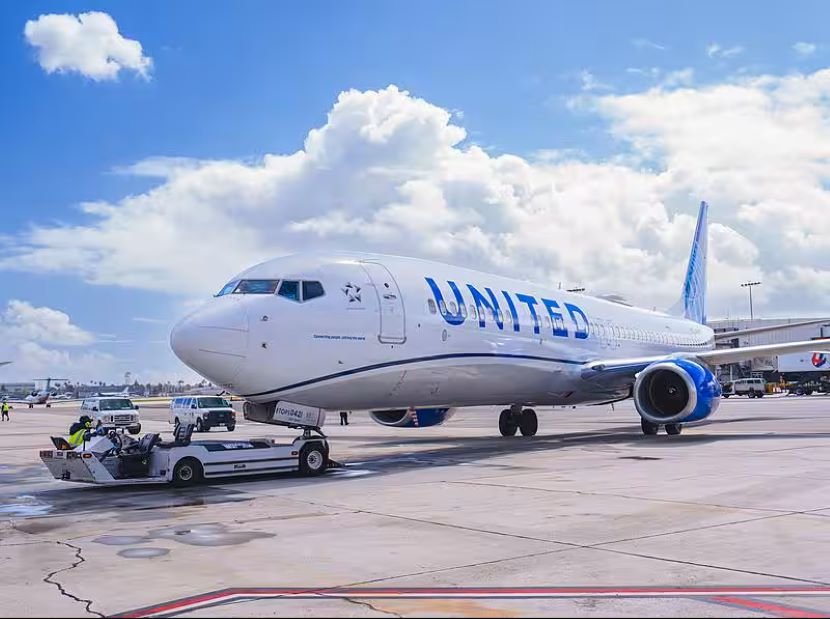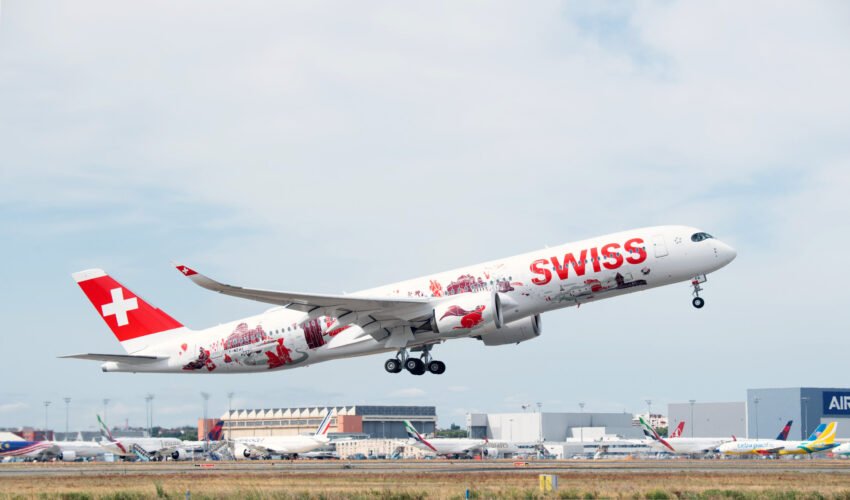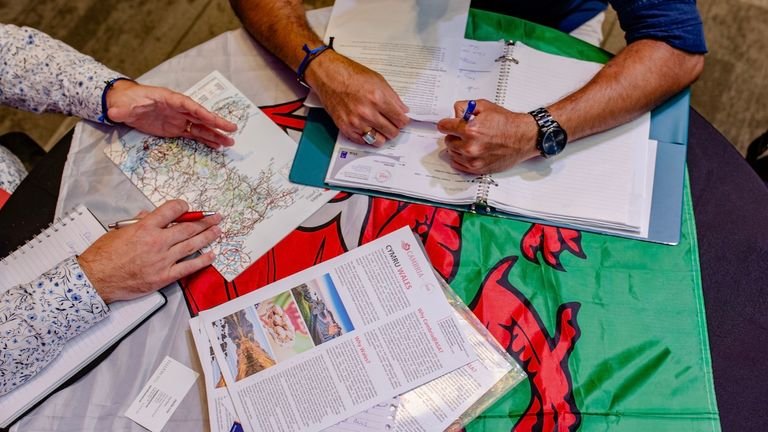Published on
September 23, 2025

Qantas, British Airways, and Cathay Pacific have recently grounded their fleets due to ongoing issues with Rolls-Royce engine failures, causing significant disruptions in global air travel. These challenges have had far-reaching effects, not only on the airlines but also on the tourism and hospitality industries across popular destinations in Australia, the UK, and Hong Kong. As long-haul flights are cancelled or delayed, travelers planning visits to iconic cities like Sydney, London, and Hong Kong are facing uncertainty. The ripple effects are being felt in hotel bookings, with many destinations seeing a dip in international tourists due to the unpredictability of flight schedules. For those planning to visit, understanding these disruptions and adjusting travel plans accordingly is crucial to ensure a smoother experience, despite the challenges in air travel.
The impact of Rolls-Royce engine failures on their clients has recently made headlines and this is what big international airlines Qantas, British Airways and Cathay Pacific recently suffered, causing major operational disruption. The travel and tourism impact rippled over to the hospitality industry of important travel and tourism hubs, translating into significant flight cancellations and delays. From the perspective of tourists, these operational disruptions come across as annoyance or negative. However, the interconnected impact of airline travel on global tourism and the travel and hospitality industry is worth reconciling and these operational failures give ample scope to realize this phenomenon.
The Airline Industry: Grounding Fleets across Major Carriers
Qantas, one of Australia’s flagship carriers, has suffered due to these engine breakdowns. They have already grounded their A380 fleet after an engine malfunction, raising concerns about passenger safety and operational dependability. The present issue with Rolls Royce’s Trent 1000 engines has caused flight delays and cancellations, and have had outsized effects on international routes. Qantas has suffered from continued loss of service to these routes. This includes critical, long-haul routes from Australia to New York, London, and Hong Kong. This has caused a huge problem for passengers as their timelines, especially for travel for holidays and corporate travel, have shifted and are causing frustration due to delays.
British Airways along with Rolls Royce has suffered operational delays and cancellations on long-haul flights as well. Some of these flights include routes to major tourist destinations such as New York, Kuala Lumpur, and Cape Town. The cancellation of flights has led to a wider web of travel disruptions within the key cities of the United Kingdom that are often plagued with tourists. These delays have had serious implications on the business class passengers and even the domestic travelers.
Cathay Pacific has been having issues with its engine components which has resulted in the abrupt suspension of over 20 return flights to Sydney and London and the entire A350 fleet having to be grounded. As a result, the city of Hong Kong has seen a significant downturn in its hotel and tourism activities as visitors to the city have seen a significant downturn, adding extra strain to the tourism and hospitality industry.
Lowering Major Destination Countries’ Tourism: A Case Study
Tourism has been greatly influenced by the disruptions caused by the Rolls Royce engine failures. A major case study is the tourists with a longing to visit Sydney, New York, Hong Kong, and London. The turbulence of the flight cancellations and delays is enough to provide immense dissatisfaction to the tourists hoping to visit such booming cities. The scarcity of flights can result in exorbitant ticket prices, a bid to book a seat, and being placed on a waiting list, and even ticket re-scheduling.
Missed flights might prevent visitors from going to the British Museum, Tower of London, or Westminster Abbey in London and many other reasons. London serves as an international tourism center and there are constant international flights to the destinations London serves as a hub for. These possible reasons again stand to a lack of service and there are remote areas which are used to the less visitors due to low hotel occupancy.
Sydney with its beautiful Sydney Opera House and Bondi Beach is also going through the problems due to the suspension of flights by Qantas. The less arrival of tourists into the city causes lack of inflow to the Circular Quay and Darling Harbour areas which in turn makes less cash flow available to the economy due to lack of spending. The hospitality sector is also suffering from a heavy blow due to lack of international tourists which could suffice the economy in a great sector.
Speaking of the Hotel Chains in Tsim Sha Tsui, their majority of the patrons belonged to high net worth individuals because the customers finding the hotel to be substandard could simply move to the other hotels in vicinity. Also, the worldview of hong kong as a travel destination has been impacted because flight disruptions makes potential customers think flight to hong Kong would face delays.
Maintaining a global connection through the hospitality bookings leads to other disruptions as experienced with the Qantas, British Airways, and Cathay Pacific. There is a strong connection with the struggling accommodations and the hospitality challenges. Such as london, sydney, and hong kong have hotels of this category as their occupancy has drop from high to unstable because inbound overseas travelers leave. After so many flights takeoff with unpredictable figures, the risk takers are mostly on the bottom when taking signle flight tickets under the planning of losing.
In international crown jewel cities like London, the Ritz London and Claridge’s have seen a reduction in international clientele bookings. The occupancy and revenue for the luxury hotel segment, perhaps the most sensitive to changes in international aviation, has seen a pronounced decline. The same happened in Hong Kong with the Peninsula Hong Kong and Four Seasons, where occupancy has become a struggle as many foreigners are cautious about traveling to a city with major aviation disruptions.
Even the margins of international travel, like Sydney, has its local accommodation revenue impacted. These changes have been most pronounced with respect to overseas bookings for the Sydney Harbour Marriott Hotel and Park Hyatt Sydney, with accommodation flight certainty affecting their incoming clientele.
Guidelines for tourists during the disruption period: Addressing the disruption
Though the disruption will certainly worry potential tourists to the region, there are steps to alleviate the problem:
- Monitor flight schedules and track changes. As passive consumers of the travel industry, clients rarely pay attention to their itinerary and flight changes. Nonetheless, clients need to track over their travel routines, especially with airlines like Qantas, British Airways and Cathay Pacific. Airlines will assist clientele with the status of their potential cancellations and delays.
- Choose potential reservations. Given how unpredictable flight plans are, so too is the likely travel framework for self-organized or booked tours. Pessimistic clients may wish to insist on a relaxed cancellation policy. Many tourism dominant cities tend to maintain strategic reservations for such clientele who need to instantly shift their travel framework.
- Seek other airlines. Should your travel plans fall within the disruption area, it is advisable to shift to cover the additional expenditure. Most people wish to control their trip economics. Nonetheless, it is worth it to spend on persuading other airlines to fly you to the ultimate destination.
- Schedule Additional Travel Time – More waits or delays necessitate planning for less time traveling. Prior planning for peaceful travel entails arriving early to the airport, checking in to flights ahead of time, and allocating time for other possible delays.
The Economic Repercussions of Rolls Royce on Aviation and Tourism
Notwithstanding the ongoing disruptions, Rolls Royce continues to provide engines to some of the most dependable jets in the world. Their long term strategies on sur engine technology, along with a focus on sustainable aviation, will help the airline and tourism businesses in the long run. With the introduction of newer, more powerful, and dependable engines, the future of traveling looks bright.
The tourism industry, in particular, has been influenced by the growing global concern on sustainability and the need to cut aviation emissions. A large percentage of tourists tend to gravitate towards airlines and destinations that promote sustainability. The aggressive advocacy for sustainable aviation by Rolls Royce and other firms could, in turn, provide novel opportunities to a previously untapped segment of tourists who have been in search for eco-friendly travel solutions.
Qantas, British Airways, and Cathay Pacific have grounded their fleets due to Rolls-Royce engine failures, disrupting air travel to key destinations like Australia, the UK, and Hong Kong. These issues are affecting tourism, hotel bookings, and overall travel experiences for tourists.
Addressing a Novel Condition of Travel Disruptions
The disruptions caused by the failure of Rolls-Royce engines has a noticeable knock-on impact on the world’s tourism sector. These disruptions have also been felt by the airlines, hotels and the tourists themselves, especially in places of high tourist concentrations, such as, London, Sydney and Hong Kong. From the perspective of a traveler, the formulation of proper plans can help in minimizing the anxiety developed from the canceling or delay of flights. Travelers can shelter their trip from such disruptions by proactive preparation, seamless and flexible bookings, and having a willingness to choose alternative routes. Given Rolls-Royce’s sustained focus on investment in programmable integration of connected intelligent systems with aviation, the firm, along with the rest of the sector, has a bright future. Sustainable aviation technology on offer promises to make travel smoother for everyone.









